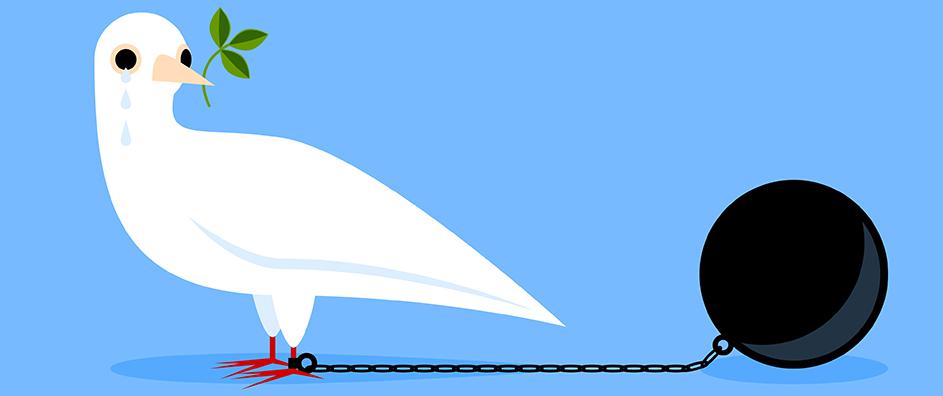The Bahá’í teachings illuminate a path towards the cessation of racial prejudice, asserting that the intertwined concepts of justice and peace must be embraced in tandem. The aphorism “No Justice, No Peace” serves as an evocative metaphor that encapsulates the essence of this discourse. It emphasizes that justice transcends mere legalistic interpretations and manifests in the moral obligation to cultivate a society where equity and unity are paramount. Racial prejudice, in stark contrast, breeds division and discord, obstructing the harmonious coexistence of humanity.
The underlying premise of Bahá’í belief is the oneness of mankind. This fundamental tenet posits that all human beings, regardless of race, nationality, or creed, share a common origin and destiny. Embracing this unity engenders a collective responsibility to dismantle the pernicious barriers erected by prejudice. As one delves into the Bahá’í teachings, the pursuit of justice emerges as a pivotal mechanism for eradicating these societal ills. The path to justice is not merely about the rectification of wrongs; it necessitates an introspective examination of systemic inequities and the complicit attitudes that perpetuate them.
Bahá’í writings elucidate that racial prejudice is not an intrinsic human trait but rather a social construct, fostered by ignorance and fear. The pernicious cycle of discrimination is akin to a blight that stifles the growth of spiritual and societal understanding. Just as a garden requires nurturing to flourish, so too must the seeds of justice be sown through education, compassion, and dialogue. The Bahá’í faith advocates for education as a fundamental pillar in the eradication of prejudice. By enlightening individuals about the shared history and struggles of diverse peoples, society can cultivate a culture that embraces differences rather than shuns them.
Moreover, the Bahá’í model of justice extends beyond individual interactions to encompass collective societal frameworks. It is imperative that institutions reflect the principles of equity and fairness. The dismantling of policies that perpetuate inequality is a communal endeavor, necessitating the engagement of all sectors of society—from governments to grassroots organizations. Such concerted efforts can catalyze a transformation that echoes the justice and peace motifs of the Bahá’í teachings, creating pathways for reconciliation instead of division.
The concept of justice within the Bahá’í framework integrates an understanding of both retributive and restorative justice. While retributive justice seeks to address past wrongs, restorative justice emphasizes healing and reconciliation. A society that embodies the spirit of restorative justice acknowledges the historical trauma inflicted upon marginalized communities. Healing cannot occur in a vacuum; it requires recognition, accountability, and ultimately, a commitment to transformation. The Bahá’í perspective encourages individuals and collectives to engage in restorative practices that mend the frayed fabric of social harmony.
An intrinsic aspect of the Bahá’í narrative is the promotion of love and fellowship as paramount antidotes to hatred and division. Love, as articulated in Bahá’í scripture, is an expansive force that transcends boundaries and fosters understanding. It is within this milieu of love that individuals are called to challenge their prejudices and biases. The process of personal reflection is indispensable. Engaging with one’s own biases lays the groundwork for authentic connection and empathy, creating a fertile environment where justice can thrive.
Innovative approaches to addressing racial prejudice can also be found within community-building initiatives framed through the Bahá’í lens. Interfaith dialogues, multicultural gatherings, and cooperative social action not only illuminate the richness of diversity but also dismantle stereotypes. These platforms serve as crucibles for change, where individuals from varied backgrounds can collaborate towards common goals, thereby reinforcing the importance of unity amidst diversity.
Additionally, art and culture can play a transformative role in the quest to eradicate racial prejudice. Symbolism and creative expression often resonate on a profound level, transcending language and conventional communication. Works of art that celebrate diversity and critique injustice have the power to evoke empathy and inspire change. Music, literature, and visual arts can serve as rallying points for communities to explore identity, experience, and the complexities of the human condition.
Furthermore, the responsibility to champion racial equality extends into the realms of leadership and governance. Leaders, both civic and spiritual, must embody the principles of justice and oneness. The Bahá’í teachings advocate for the emergence of a new cadre of leaders who prioritize the welfare of humanity above self-interest. Such stewardship entails the active dismantling of systemic oppression and the provision of equitable opportunities for all individuals to flourish. When governance is infused with a commitment to justice, the likelihood of peace and stability markedly increases.
In conclusion, the Bahá’í teachings assert that the eradication of racial prejudice necessitates a multi-faceted approach rooted in justice and peace. It is a collective endeavor demanding education, introspection, community engagement, love, and empathetic leadership. The journey towards justice is not a solitary path; it is interwoven with the fabric of humanity, summoning each individual to play a role in this pivotal narrative. The resonating words “No Justice, No Peace” serve not merely as a warning but as an aspirational call to action—a reminder that true peace can only flourish where justice is demonstrably upheld. It is incumbent upon all to endeavor towards this noble goal, fostering a society that acknowledges and celebrates diversity, while constructing bridges of understanding that will endure the test of time.
